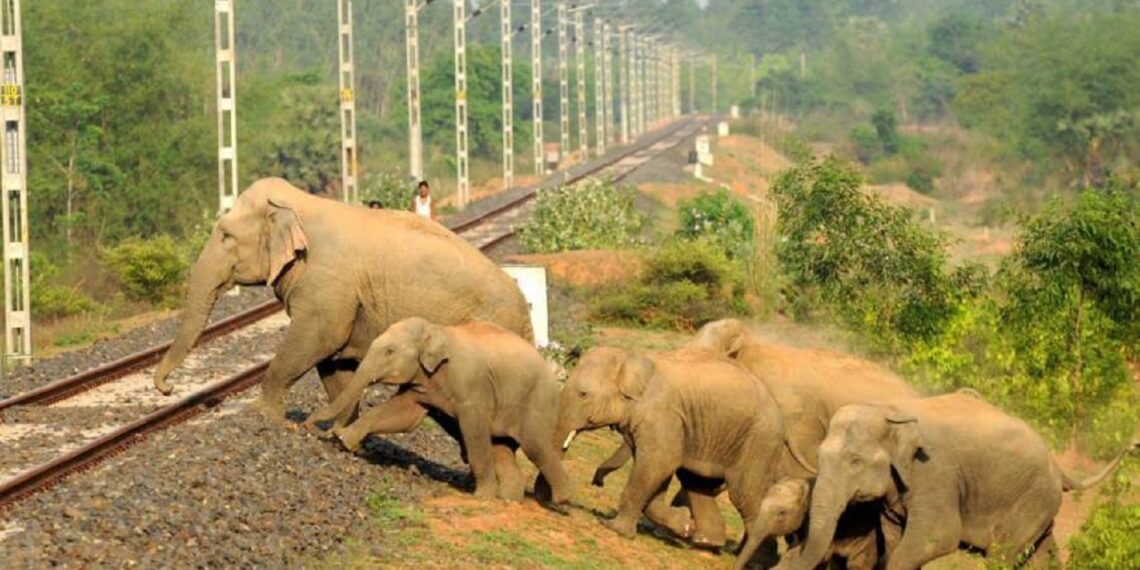GUWAHATI: In a move to protect elephants and avert train-elephant collisions, the Northeast Frontier Railway (NFR) is set to introduced an advanced artificial intelligence (AI)-based surveillance system in crucial elephant corridors of the Northeast.
Known as Intrusion Detection System (IDS), the NFR recently signed a Memorandum of Understanding (MoU) with RailTel Corporation of India Ltd in this regard. This advanced system is also expected to expedite approvals from the Ministry of Forest and Environment for new railway lines and projects passing through wildlife sanctuaries and national parks.
Sabyasachi De, Chief Public Relations Officer of NFR, told the press that the introduction of IDS will help in preventing and detecting the movement of wild animals, especially elephants, near railway tracks.
The IDS, powered by AI, utilises existing optical fibres as sensors to identify wildlife movements along critical locations and instantly alerts control offices, station masters, gatemen, and locomotive pilots. This innovative system leverages the principles of dialysis scattering phenomena to detect the real-time presence of elephants on the tracks.
One of the key features of this AI-based software is its ability to monitor unusual movements within a 60-km stretch. Additionally, the IDS can assist in identifying rail fractures, unauthorised trespassing on railway tracks, and alerting authorities about disaster mitigation measures, such as unapproved digging near tracks and landslides.
The pilot project, conducted in the Chalsa – Hasimara section of the Dooars area in West Bengal and the Lanka – Hawaipur section in Assam’s Lumding Division, achieved 100% success. Encouraged by its success, NFR plans to gradually expand the IDS system to cover all other elephant corridors within its jurisdiction.
De also highlighted the system’s capability to provide early detection of elephant movement, offering a vital 30–40-minute advance warning. This early warning enables real-time alarms to be generated, reaching station masters, the central control system, and level crossing gates through audio-visual alerts.
The implementation of this technology is not only a boon for wildlife conservation but also a game-changer for railway transport in the NFR region. By reducing the risk of train-elephant collisions, the IDS system is expected to enhance train speeds on elephant corridors, increasing the efficiency of rail transport.
India is home to approximately 27,312 elephants, with Assam alone hosting 5,719, making it the second-largest population of these majestic creatures in the country, following Karnataka. However, reports indicate that between 2012 and 2022, 30 elephants lost their lives in Assam. The grim statistics include not only the loss of elephant lives but also the tragic consequences for humans. Human-elephant conflicts have led to the deaths of 118 people in Assam, primarily caused by elephant attacks, making this initiative even more crucial for the safety of both wildlife and humans.















